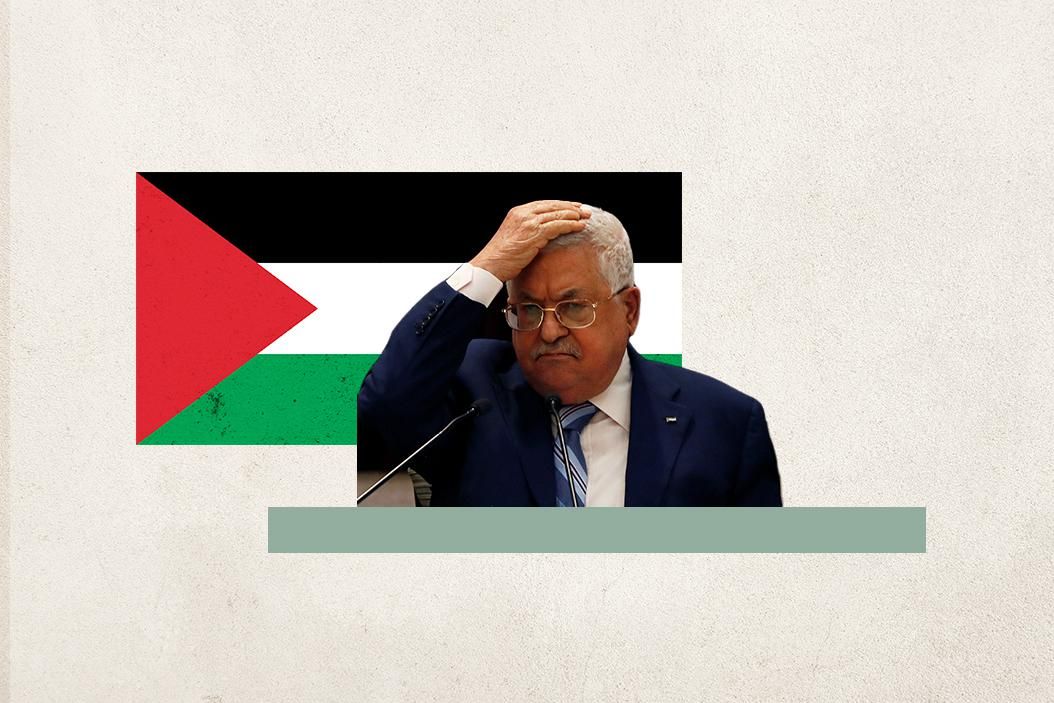April 27, 2021
The last time Palestinians went to the polls was in 2006, after Mahmoud Abbas replaced longtime Fatah stalwart Yasser Arafat as president of the Palestinian Authority.But factional infighting between Fatah and Hamas (designated a terror group by the US and EU) brought the Palestinians to the "brink of civil war," Abbas said at the time. Discord over power, ideology and vision led to a bloody battle that saw Fatah expelled to the West Bank in 2007, where it has ruled ever since, while Hamas maintains power in the overcrowded Gaza Strip.
Now, some 15 years later, Palestinians are set to vote in legislative elections next month. But intra-Palestinian cracks are again surfacing, suggesting that the long-anticipated vote could be scrapped. If Abbas' Fatah faction decides not to hold the vote, which has been delayed since 2010, the implications could be calamitous.
What's at stake? Abbas — who at 85 has led the Fatah-controlled Palestinian Authority for 16 years — does not want to give up his job or his party's grip on the West Bank. But Abbas' electoral prospects have been undermined in recent months by breakaway Fatah factions, particularly the one headed by jailed militant Marwan Barghouti, who is extremely popular with Palestinian voters. (In a recent poll, 28 percent of voters said they would vote for Barghouti's list, compared to just 22 percent for Abbas' once-dominant Fatah.)
Importantly, the carving up of support among Fatah-associated candidates would give a massive boost to Hamas, which, according to polls, would get 27 percent of votes across the West Bank and Gaza, to become the biggest party in parliament. Meanwhile, 57 percent of Palestinians in both areas say they would support a joint Fatah-Hamas list. For now, however, that option seems extremely unlikely given how acrimonious the relationship is.
Abbas is testing the waters. Fearful of political defeat, Abbas, who has a close albeit testy working relationship with Israel's security apparatus, is testing his options. In recent days, he has said that the upcoming polls might be delayed for an unspecified period of time, because Israel is not giving Palestinians in East Jerusalem enough access to voting booths. (The 1993 Oslo Accords stipulate that some Palestinians can vote at designated Jerusalem post offices; most will have to vote in the West Bank. Abbas and his loyalists say this will disenfranchise East-Jerusalem based voters.)
But critics say that Abbas is manufacturing a political crisis and using Israel's failure to formally facilitate the voting process as a pretext to annul the vote to avoid defeat.
What do Palestinian voters want? Surveys show that the top four priorities for Palestinian voters are the unification of the West Bank and the Gaza Strip, boosting the economy, tackling corruption and removing the blockade of Gaza. Abbas knows that he is extremely unpopular, and that his government is oft-associated with cronyism and graft (some 84 percent of Palestinians in both enclaves say that PA institutions are corrupt). While voters don't think that Hamas will do a better job of improving their economic prospects, they do trust the militant group (more than the PA) to tackle endemic corruption.
Igniting Hamas' wrath. Sending a flurry of rockets into Israel in recent days, an emboldened Hamas made it clear to both the PA and Israeli leadership that there would be serious consequences if next month's vote were to be scrapped. Gazan sources also told a Lebanese outlet that relevant players should prepare for an uptick in violence if the polls don't go ahead.
Israel's position. It's still unclear, however, what Israel's official position is on the vote, and how much power it has to affect internal Palestinian politicking anyway. But this is all taking place against the backdrop of a violence-filled week in Jerusalem, where Arab residents — angry at restrictions placed on access to the Old City during Ramadan — beat ultra-Orthodox Jews and uploaded videos of the attacks to TikTok. In response, right-wing Jewish extremist groups marched through the city chanting "Death to Arabs." While recent nights were quieter, the situation is combustible, with many fearing that the clashes, so far confined to Jerusalem, could spread to the Gaza Strip and the West Bank — and even elsewhere in the Muslim world, given the symbolic status of Jerusalem.
Looking ahead. International and regional heavyweights like the EU and Egypt are lobbying Israel to facilitate mass voting throughout East Jerusalem. But it seems like Abbas, not wanting to relinquish power, may have already made up his mind to shut down the vote and roll the dice.
From Your Site Articles
More For You
- YouTube
Is the AI jobs apocalypse upon us? On Ian Explains, Ian Bremmer breaks down the confusing indicators in today’s labor market and how both efficiency gains as well as displacement from AI will affect the global workforce.
Most Popular
Think you know what's going on around the world? Here's your chance to prove it.
Reform UK leader Nigel Farage holds a post-budget conference in London, United Kingdom, on Nov. 26, 2025.
Phil Lewis/WENN
Nigel Farage, the far-right UK leader, reportedly told donors that he plans to join forces with the center-right Conservative Party ahead of the next election. Right-wing groups in other parts of Western Europe have largely avoided making such an alliance.
Nearly four years into Russia's invasion of Ukraine, the push to end the war is intensifying. The past few weeks produced not one but two proposals.
© 2025 GZERO Media. All Rights Reserved | A Eurasia Group media company.
